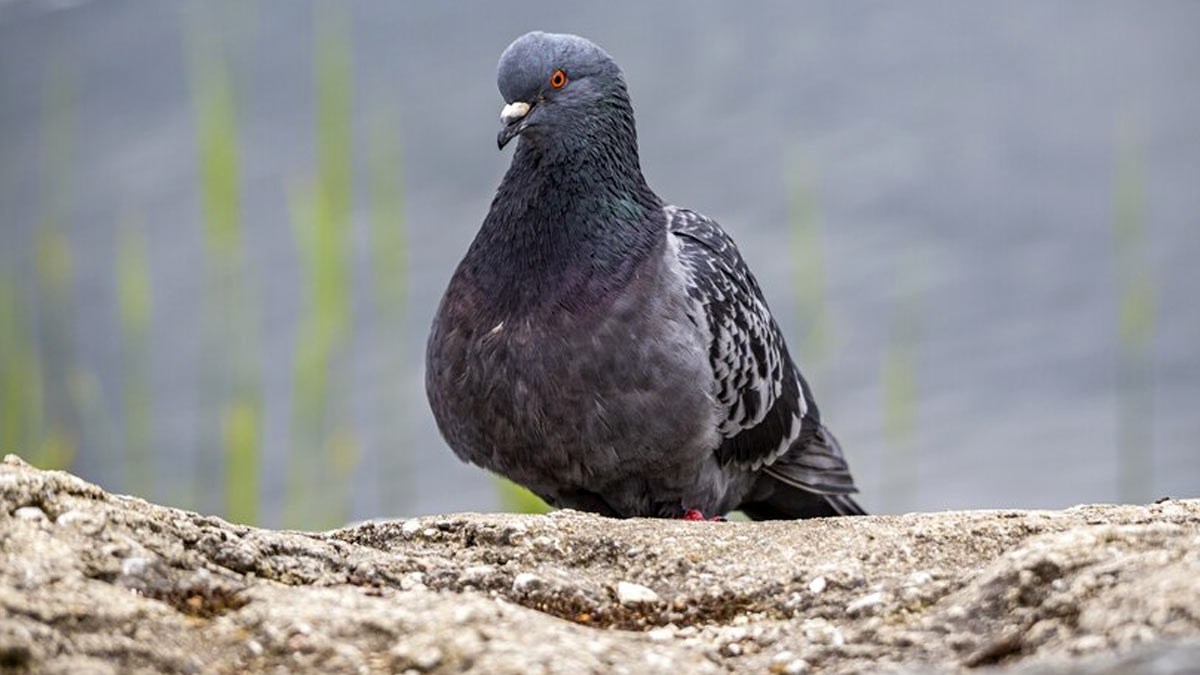
Pigeons are a common sight in urban areas, you may often see them perched on rooftops, flapping their wings rapidly in your balcony, or flocking around public spaces. While they may appear harmless, their droppings carry hidden dangers that can seriously affect human health. Exposure to pigeon poop can lead to various infections, respiratory conditions, and even life-threatening illnesses. From fungal infections like cryptococcosis to bacterial diseases like psittacosis, these droppings pose a silent but significant risk.
Table of Content:-
Health Risks from Pigeon Droppings
Pigeon droppings are not just an unsightly mess—they can carry a host of diseases that are harmful to humans. To understand the health risks due to pigeon poop, OnlyMyHealth interacted with Dr Roohi Pirzada, MBBS, General Physician, Mumbai.
She highlighted several diseases that can be contracted through pigeon poop, including psittacosis, histoplasmosis, cryptococcosis, and salmonella infection. These diseases can be transmitted when people breathe in dust particles containing droppings, particularly during cleaning.

- Psittacosis, a bacterial infection, can cause flu-like symptoms such as fever, rash, chills, and even pneumonia.
- Histoplasmosis and cryptococcosis, both fungal infections, are of particular concern, especially for immunocompromised individuals. According to a study cryptococcus spores, commonly found in pigeon droppings, are a significant source of infection in urban environments, particularly for immunocompromised individuals. Dr Pirzada notes that "nearly 85% of cryptococcal infections occur in immunocompromised individuals", making this a critical issue for people with weakened immune systems.
The dangers don't stop there. Pigeon droppings can carry salmonella, a bacterial infection that leads to diarrhoea, abdominal pain, and fever. Dr Pirzada adds, "Salmonella infection that can cause diarrhoea may also be present in bird droppings. These act as a great disease carrier as they can reach distances by air or by sweeping."
Also read: Foods That Can Increase Your Risk Of Vaginal Infections
Bird Fancier’s Lung and Respiratory Complications

For those frequently exposed to pigeons or their droppings, the risk of developing chronic respiratory conditions is heightened. Bird Fancier’s Lung or Bird Breeder’s Lung is a hypersensitivity pneumonitis caused by prolonged exposure to bird antigens, including those in pigeon droppings.
Dr Pirzada explains, “In this disease, there are flu-like symptoms like shortness of breath, cough, fever, and in extreme cases, reduced lung efficiency and pulmonary fibrosis." This condition can escalate into serious respiratory complications, particularly if exposure continues over a long period.
Pigeon droppings are not the only source of danger. According to Dr Pirzada, “The fur and feathers too can cause airway diseases like asthma, COPD, bronchitis, and bronchiolitis.” For individuals with pre-existing lung conditions, exposure to pigeon droppings can exacerbate their symptoms and lead to more severe respiratory diseases.
Airborne Contamination

One of the most dangerous aspects of pigeon droppings is their ability to spread diseases through the air. Dr Pirzada explains, "The spores from dry poop can enter the vent and air ducts of your home and settle on food and water, causing severe food poisoning." This airborne contamination can affect entire households, especially if pigeon droppings are not cleaned up properly.
Conclusion
Pigeon droppings pose a serious health risk, particularly through the transmission of bacterial, fungal, and viral diseases. These infections, including psittacosis, histoplasmosis, and cryptococcosis, can have long-lasting effects on the respiratory system and general health. As Dr Roohi Pirzada warns, individuals should be cautious when dealing with pigeon droppings, especially if they are immunocompromised or have existing lung conditions. To protect yourself and your family, it's essential to avoid direct contact with pigeon droppings, wear protective gear when cleaning, and ensure that bird waste is properly disposed of to prevent airborne contamination.
Also watch this video
Read Next
High Cholesterol And Weight Gain: Expert Explains How Cholesterol Levels Impact Weight Management
How we keep this article up to date:
We work with experts and keep a close eye on the latest in health and wellness. Whenever there is a new research or helpful information, we update our articles with accurate and useful advice.
Current Version